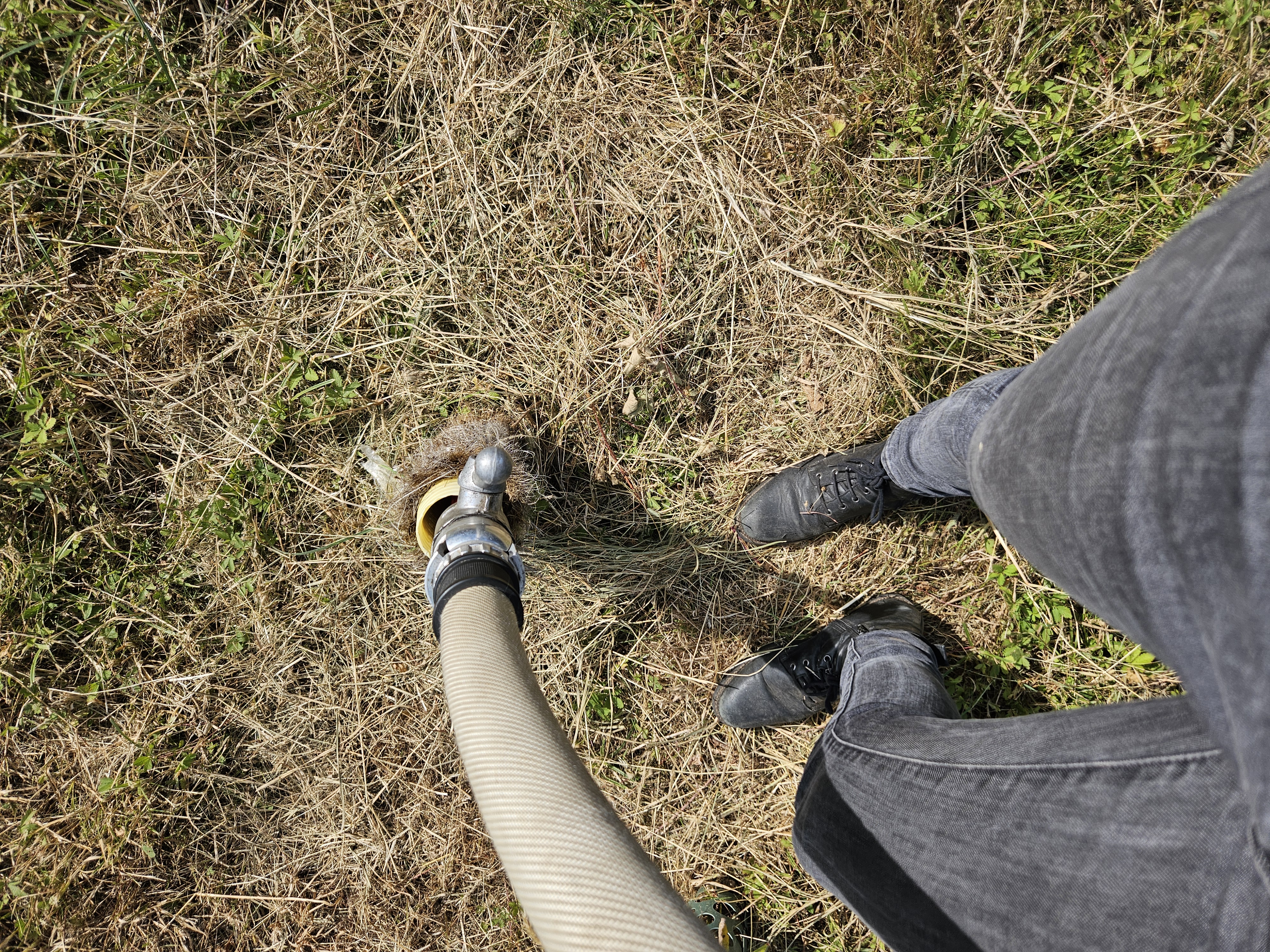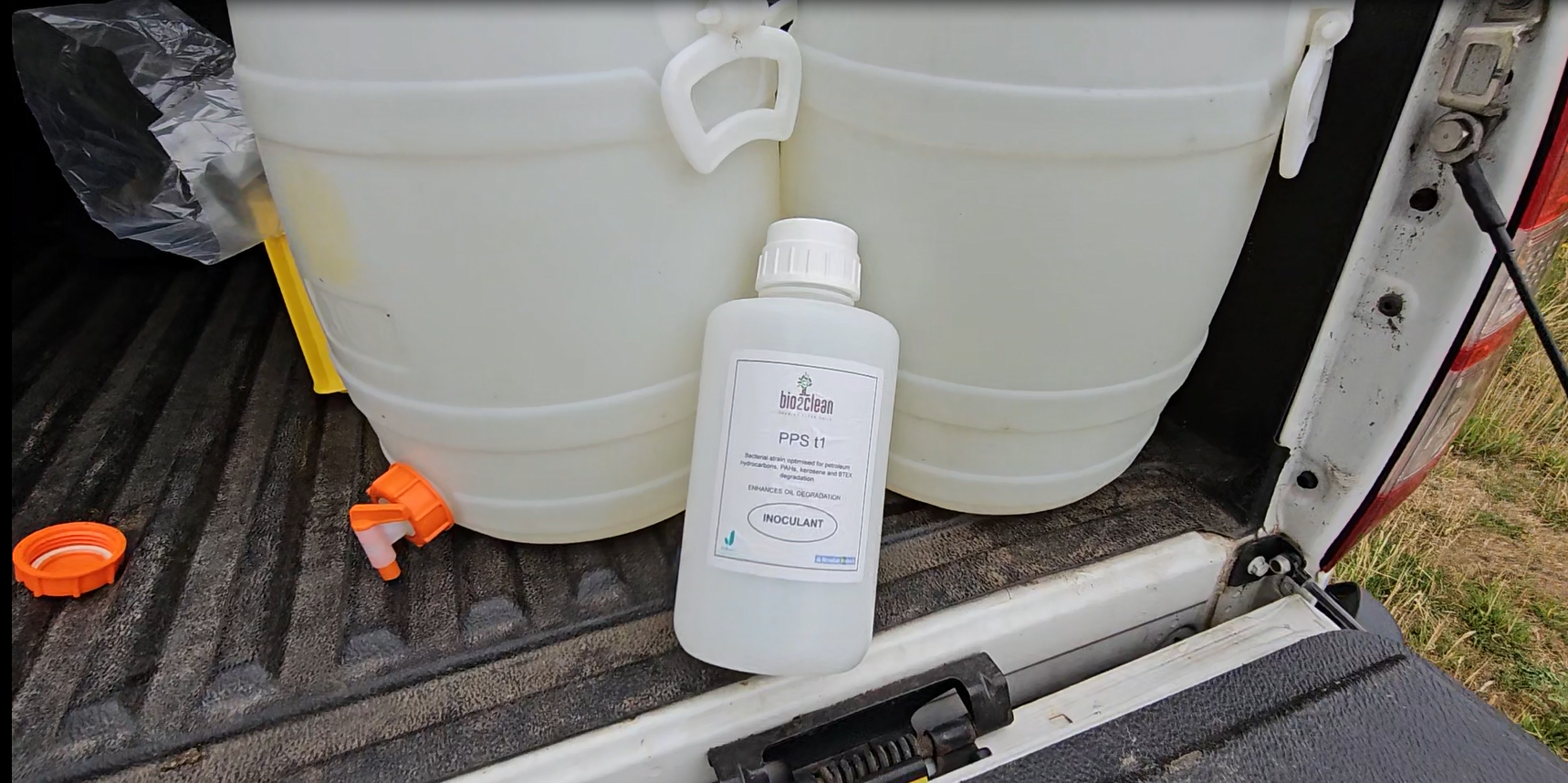
Upscaling bacterial inocula for remediation
Translating microbial strains into reliable, field-ready products
Overview
Certain soil, rhizospheric and endophytic bacteria can boost pollutant degradation. We identify, validate, and scale microbial strains and their functions that improve pollutant detoxification. By enhancing their gene expression, we accelerate phytoremediation and expand nature’s own detoxification capacity. For this project, we upscaled an oil- and PAH-degrading bacterial inoculum to tackle a kerosene spill, demonstrating how targeted microbial consortia can boost both remediation efficiency and plant resilience.
What we did
- Bacterial genome mining & plasmidomics to discover functional traits (PGP, degradation, biocontrol).
- Metabolite screening to profile active degradation, mode of action and transformation products.
- Bench → field workflows: soil drench inocula formulation, upscaling and stability testing.
Monitoring & verification
We track the growth-promotion and degradation potential of microbial communities, assess the presence and activity of target genes after inoculation (qPCR, amplicon/shotgun), and follow introduced strains to confirm establishment and field impact.
Outcomes
- Shortlist of robust strains or consortia with validated field performance.
- Formulation and success-control metrics for reliable on-site use.
- Scale-up plan: pilot design → grower trials → productization.
